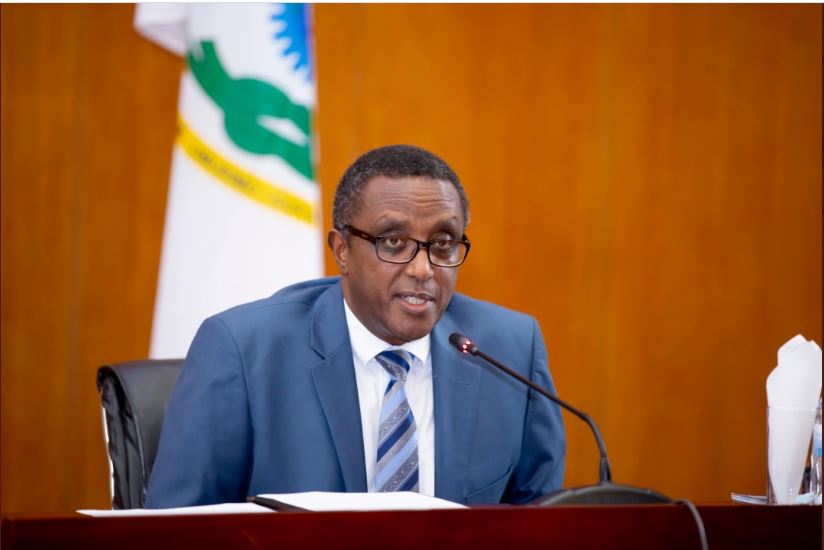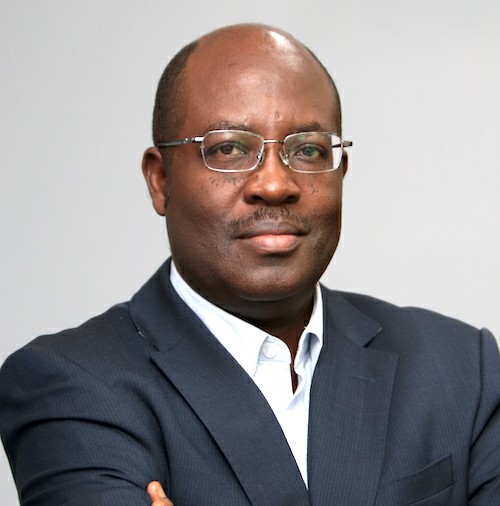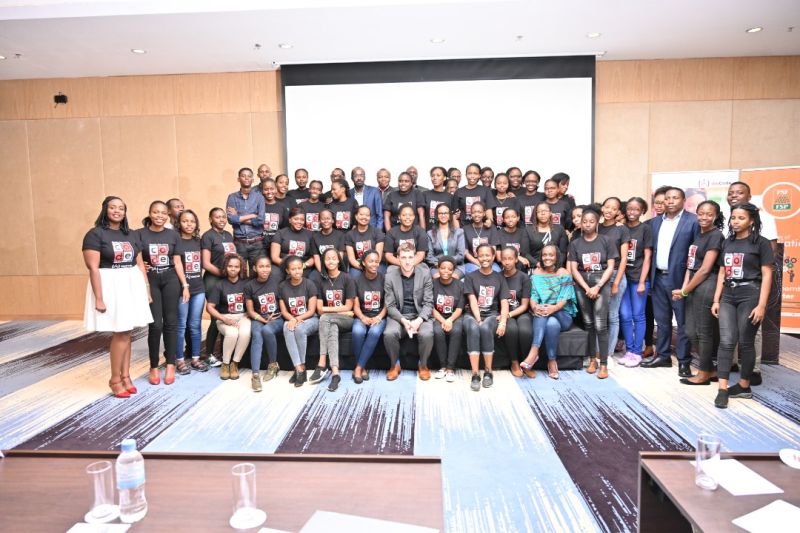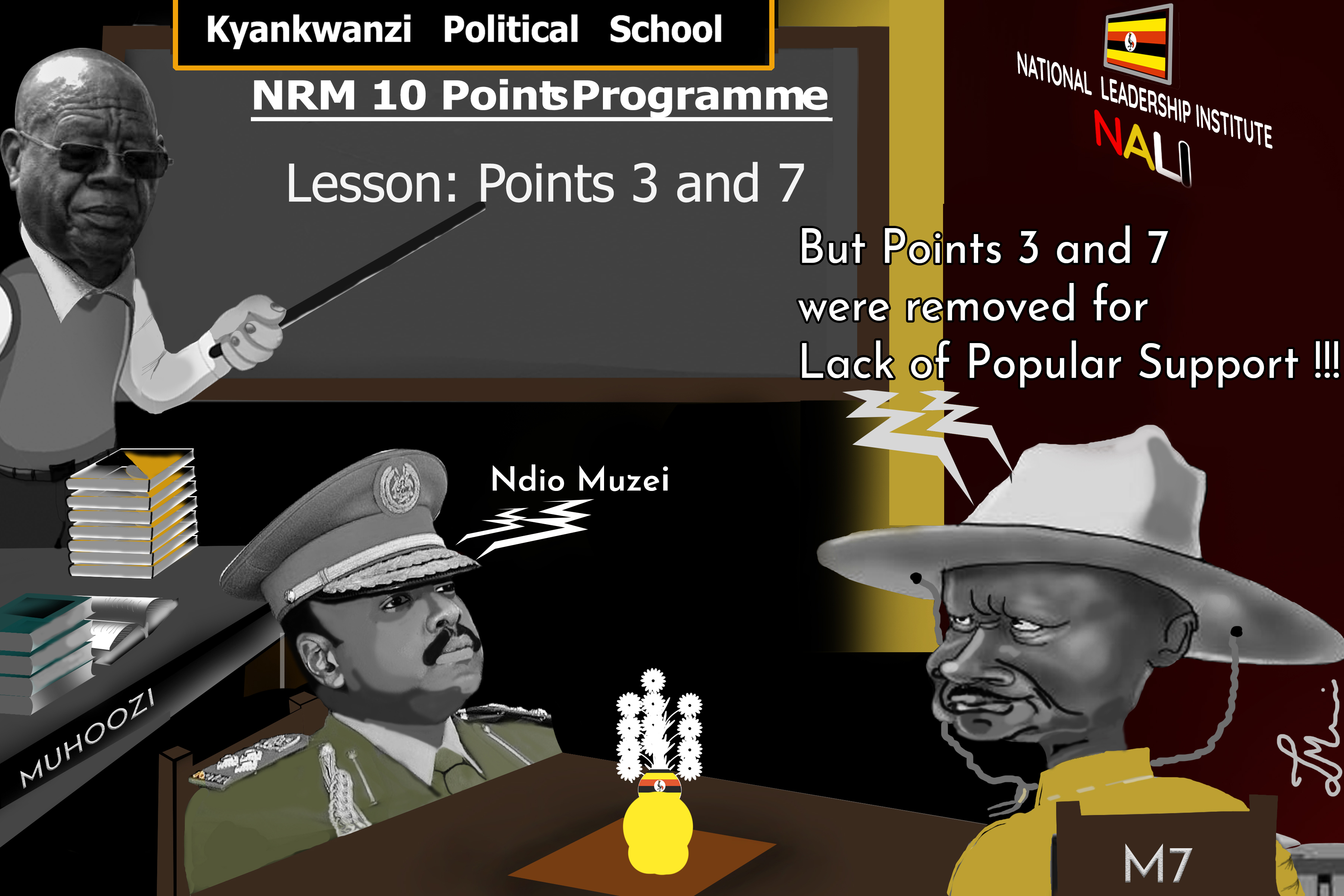Regional
Uganda government more dangerous virus than Covid 19
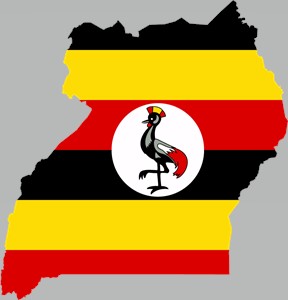
African leaders are good preachers of sustainable
development whenever they get the opportunity to engage with the public. The
thought-provoking point is that while some of them are busy walking the talk,
others are busy dashing the hopes of their electorate.
Uganda’s Yoweri Museveni, however, is a special breed when
it comes to the declarations he makes to the electorate and what he actually
does. Just a few weeks after his sixth swearing in as President of Uganda,
Museveni once again proved to Ugandans that in his world, meritocracy takes a
back seat.
For evidence, look no further than the appointments he made.
Be it his cabinet of fishermen, as he called it, the heads of parastatals and
accounting officers - permanent secretaries of different ministries and other
government bodies.
This not to mention the litany of senior presidential
advisors – many of them out of favour – who like those before them, he
hoodwinked with these positions for welfare purposes. He
now counts over 100 senior presidential advisors, all paid by the Ugandan
taxpayer, for doing completely nothing.
When it comes to the appointments in key or lucrative
ministries and parastatals, it is crystal clear that Museveni sees such
appointments as an opportunity to reward his praise singers other than
delivering for Ugandans. One doesn’t need one to be a
specialized investigator to identify the bitter reality of Museveni’s
preferential treatment which continues to sink Uganda.
Last week, Jane Kibirige, who was until then the Clerk to Parliament,
was not only reshuffled by Museveni out of the job as the parliament’s chief
accounting officer. She was also given a lifelong blemish on her otherwise
stellar public service career after the President decided to retire her in
public interest.
Inside sources have it that her only crime was trying to
block the machinations by Museveni’s luminaries to continue looting the country
through the works to expand the parliamentary building.
For trying to be accountable to tax payers' money, her
reward was to be “dismissed for public interest”. A true revelation that Uganda
will have seen it all; when the President and his family entourage, exclusively
represent “public interest”. An interesting Made in Uganda reality.
Shamelessly, Museveni ascertained that he has got a
personalized definition of accountability and public interest as he kept Dr.
Diana Atwine as Permanent Secretary at the Ministry of Health despite her
having sided with the looters of Covid-19 funds. Let's also not forget the
mysterious vanishing of the money that was meant to buy ICU beds last year.
Needless to say, Atwine is so close to Museveni, so much so
that she has for long been the physician for the First Family. Another
revealing appointment is the appointment of journalist Andrew Mwenda’s sister,
the scandal-ridden Margaret Muhanga as state minister in charge of primary
healthcare. This
appointment in the middle of a pandemic clearly shows the priorities for
Uganda’s President.
To quote Ugandan legislator, Mathias Mpuga, the government
of Uganda is the most pervasive and potentially dangerous virus to Ugandans
than Covid-19. I was forced to conquer with Mpuga’s statement after my shocking
discovery of Museveni’s recent spending, when he ordered his government to
spend $30 million of taxpayers’ money for the purchase of luxurious cars for
members of parliament. This was highly questionable at a time his government is
failing to provide healthcare for Covid-19 infected people.
Hundreds of Ugandans are dying everyday for lack of medical
care due to the pandemic. The country is unable to supply much needed oxygen to
its people in ICU wards and thousands die yet it would have been avoidable. For
Museveni, Ugandans can die so long as his notorious mafia network is well
secured.
For three decades, Museveni’s nepotism has been very
consistent and a concern to many. Uganda is increasingly plunging into
a chaotic state. The economy is more and more unsteady and the distribution of
wealth among Ugandans is imbalanced more than ever before, as capital is
centralized in the President’s family and his notorious brother’s mafia network
through looting and other serious economic crimes by Museveni’s entourage at
the detriment of the Ugandan people.
Remarkably, the once alive National Resistance Movement
(NRM) has turned out to be ideologically bankrupt. The values of
accountability, people centeredness and pragmatism are no longer wanted.
The question, however, is: have these values ever been the
NRM’s real etiquette or just slogans used to ascend to power? How come the NRM
is increasingly disintegrating along particular reimbursements issues or along
some misunderstanding with the President’s inner circle? What
place do Ugandans occupy in Museveni’s governance equation? Where does the NRM
place Ugandans in all its considerations?


